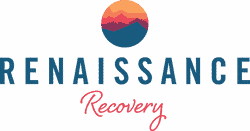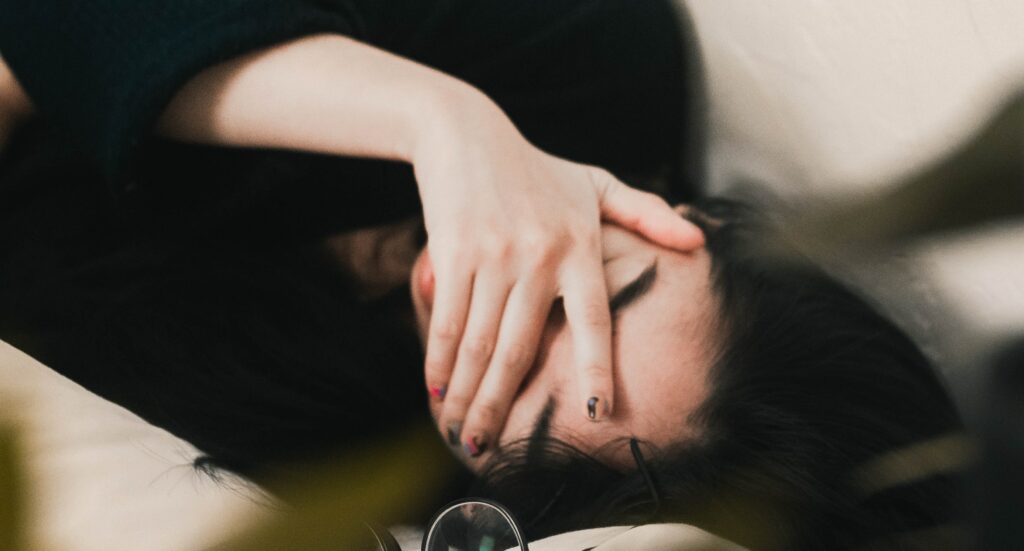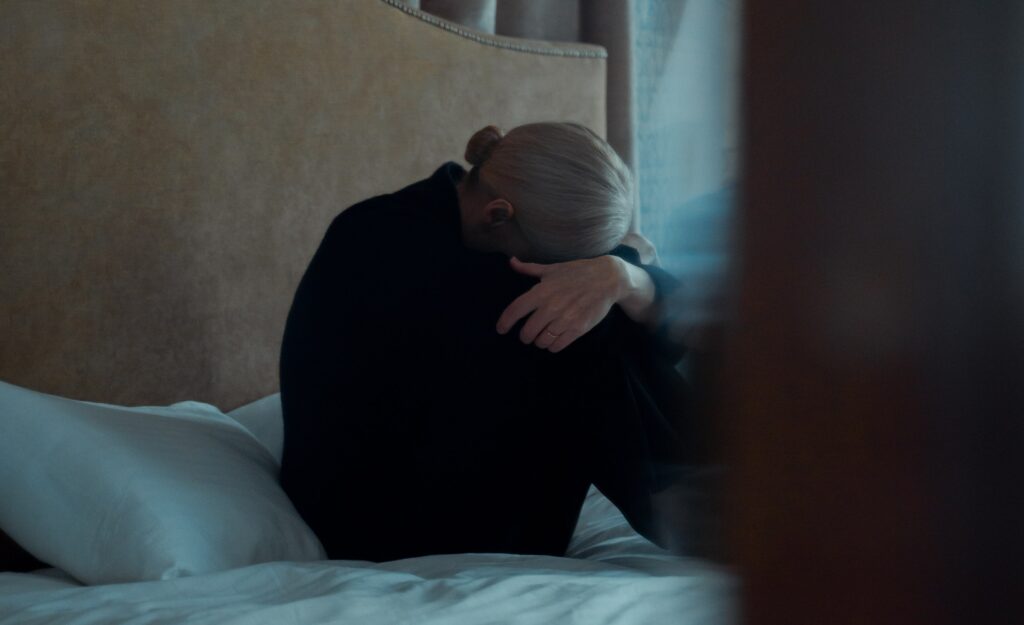Prescription Drug Detox & Withdrawal Treatment
understanding prescription drug detox & withdrawal
Whether you have been abusing prescription drugs or you have become physically dependent on prescription medications, one of the most significant barriers to recovery can be the concern of withdrawal symptoms during the detox phase.
If you are battling with prescription drug dependence, you should not abruptly stop taking the medication. If prescription drug withdrawal is not properly managed, it can be aggravating and potentially life-threatening.

By: Renaissance Recovery
Clinically Reviewed by: Diana Vo, LMFT
Last Updated:
03/24/2024
Prescription Drug Detox & Withdrawal
Data from SAMHSA (Substance Abuse and Mental Health Services Administration) indicate that 6.8 million U.S. adults used prescription drugs in 2021. Due to methodological changes implemented to SAMHSA’s annual National Survey on Drug Use and Health, this includes both the use and misuse of these prescribed drugs.
NSDUH data from the previous year show that 3.4 million over-18s abused prescription drugs in 2020 – primarily opioids, stimulants, sedatives, and tranquilizers.
This guide addresses the following issues:
How to detox your body from prescription drugs.
How long does it take to detox from prescription drugs?
What are the withdrawal symptoms of prescription drugs?
How to connect with prescription drug detoxification services and treatment.

What is Prescription Drug Withdrawal?
Prescription drug withdrawal occurs when someone who is physically dependent on medication attempts to moderate or discontinue use of specific drug. As your system struggles to cope in the absence of a substance to which it is accustomed, withdrawal symptoms are a physical and psychological response from the system.
All routinely abused prescription drugs have the potential to cause tolerance and physical dependence to develop. Even if you use prescription drugs only as directed by your prescribing physician, you may still become physically dependent on the medication if you use it for a sustained period.

Prescription Drugs That Cause Withdrawal Symptoms
Taking any of these types of prescription drugs for more than two to four weeks is liable to trigger the manifestation of withdrawal symptoms:
Opioid painkillers
Benzodiazepines
Z-drugs (non-benzo sleep aids)
Stimulant medications
Gabapentinoids (anti-epileptic drugs)
The severity of prescription drug withdrawal increases the longer you have been taking the medication and the higher the dosage you have been taking.
Chronic abuse of prescription drugs can result in potentially life-threatening symptoms of withdrawal during prescription medication detox.
Both opioids and benzos can cause tolerance and physical dependence to develop rapidly. Both types of drugs are also associated with increased risk of severe withdrawal symptoms during detox.

Fight Back Against Prescription Drug Addiction
Get evidence-based treatment to overcome prescription drug addiction at Renaissance Recovery. Call our team now to learn more about the process.
Common Prescription Drug Withdrawal Symptoms
Withdrawal from a prescription drug addiction or dependence can be physically and mentally demanding. Each prescription drug has withdrawal symptoms specific to that medication.
Withdrawal symptoms associated with prescription drugs are frequently the exaggerated opposite of the pharmacological effects triggered by the drugs. The intensity of withdrawal symptoms from other drugs causes many people to continue using prescription medications to prevent the onset of withdrawal.
Despite this, life-threatening withdrawal symptoms seldom manifest during a medically supervised detox or medical detoxification. Which is why whether you’re dealing with Klonopin withdrawal, Hydrocodone withdrawal, OxyContin withdrawal, or something else, it is vital to seeek the help of a medical detox.
How do you detox prescription drugs as safely and comfortably as possible, then?

Medical Detox for Prescription Drugs
A medical detox for prescription drugs involves a person discontinuing the use of a prescribed drug so that all traces of the substance are purged from the system under close medical supervision.
During the withdrawal period from prescription medications, the body attempts to restore homeostasis – its original state of balance before drug dependence developed. This process is typically unpleasant and uncomfortable as withdrawal disrupts chemical processes in the brain, triggering the manifestation of physical and psychological withdrawal symptoms.
In most cases, acute opioid withdrawal symptoms often do not persist for long and can be effectively managed by medical professionals and addiction specialists.
You can engage with a prescription drug detox in the following settings:
-
Licensed medical detox center
-
Inpatient rehab
-
Outpatient rehab
The Medical Detox Process
The medical detox process unfolds as follows:
-
Assessment: A medical professional will evaluate your medical and drug use history during an initial assessment to determine the most appropriate course of treatment for your needs and the severity of your addiction.
-
Medication management: Medications may be used to help manage withdrawal symptoms and reduce cravings – buprenorphine for opioids or benzodiazepines, and clonidine for symptoms like anxiety and insomnia.
-
Monitoring: You will be monitored closely to ensure your safety and comfort throughout the detox process. Adjustments may be made to the treatment plan as needed.
-
Support: In addition to medical care, those engaging with a medical detox program may receive counseling, therapy, or other types of support to address the psychological and emotional aspects of addiction.
A supervised medical detox program can help you to withdraw from prescription medications while minimizing the risk of complications or relapse. That said, detox alone is not sufficient to treat opiate addiction.
Detox, rather, acts as a bridge into ongoing treatment to address the underlying issues contributing to the addiction and promote long-term recovery. This normally includes a combination of MAT (medication-assisted treatment), psychotherapy, and counseling.
So how do you detox from prescription drug withdrawal?


How to Detox Your Body from Prescription Drugs
Detoxing your body from prescription drugs can be a complex process and it should be performed under the guidance of a medical professional.
Consult with a healthcare provider who can provide guidance on the safest and most effective way to detox from prescription drugs. A medical detox program may be recommended for those who have developed a physical dependence on prescription medications like opioids or benzos.
Drinking lots of water and other fluids will help flush all toxins from the body and prevent dehydration, streamlining the withdrawal process.
A nutritious diet that includes lots of fruits, vegetables, whole grains, and lean protein can help support your body’s natural detoxification processes and promote overall health.
Rest is vital for the body to heal and recover from the effects of prescription drug use. Aim for seven to eight hours of sleep per night, and take naps or rest as needed.
Regular exercise can help boost mood, minimize stress, and support the body’s natural detoxification processes. You should nevertheless consult with your healthcare provider before starting an exercise program, particularly during the detox process.
Complementary therapies like acupuncture, massage, mindfulness, and meditation may help reduce stress and anxiety, which can be helpful during the detox process.
Now you know what’s involved, how long does the withdrawal process take?
How Long Does It Take to Detox from Prescription Drugs?
Different types of prescription drugs are associated with different withdrawal timelines however it normally takes 7-10 days to go through the detox process. Other factors that impact how long it takes to withdraw from medications include:
Duration of use
Frequency of use
Prescription drug dosage
Misuse or abuse of prescription drugs
Co-occurring mental health conditions
Physical health status
Continue reading for a typical withdrawal timeline for the following prescription drugs:
Opioids
Sleeping pills
Benzos
Stimulants
Gabapentinoids

Prescription Drug Withdrawal Timelines
Opioid withdrawal symptoms timeline
The withdrawal timeline from prescription opioids like morphine, codeine, oxycodone, and fentanyl, lasts for a week or two. Symptoms become less intense after roughly one week of abstinence from opioids. Psychological withdrawal symptoms may persist for weeks or months after discontinuing use. PAWS (post-acute withdrawal syndrome) is much more likely to manifest if you detox without medical supervision.
Prescription sleeping pill withdrawal
The withdrawal timeline for sleeping pills (Z -drugs) like Zopiclone or Zimovane generally peaks from two to ten days after quitting the medication. Physical withdrawal symptoms may linger for up to three weeks. Psychological symptoms may persist for much longer if you do not seek professional treatment.
Prescription benzo withdrawal
Benzo withdrawal can be protracted with withdrawal symptoms from medications like Xanax or Klonopin peaking two weeks after the last use. Benzo withdrawal symptoms can last for months or years in the event of PAWS. It is imperative to withdraw from benzodiazepines with medical oversight.
Prescription stimulant withdrawal
Withdrawal symptoms from prescription stimulants like Adderall and Ritalin peak between four and seven days after the last use, lasting for up to one month.
Prescription gabapentinoid withdrawal
Gabapentinoids like pregabalin and gabapentin are associated with physical and sometimes psychological distress and withdrawal symptoms that peak approximately five days after stopping the drug.

What to Expect from Prescription Drug Detox Centers
Inpatient detox programs provide 24-hour medical supervision and support in a residential setting. This type of program is recommended for those with severe addictions, co-occurring mental health issues or conditions, or histories of relapse.
Outpatient detox programs allow individuals to receive treatment while living at home. This type of program is recommended for those with mild or moderate addiction who have a strong support system at home.
Rapid detox programs are a form of inpatient detox that uses anesthesia and medication to speed up the withdrawal process. This type of program is controversial and not recommended by most addiction treatment experts.
Regardless of the type of medical detox, the process is broadly similar. Before beginning a prescription drug or alcohol detox program, you will undergo a comprehensive evaluation and assessment to determine the best course of treatment. This may include a physical exam, lab tests, and a review of your medical and addiction history.
Medication-Assisted Treatment (MAT)
MAT (medication-assisted treatment) is often used to manage withdrawal symptoms during the detoxification process. MAT involves the use of medications like methadone, buprenorphine, or naltrexone to reduce cravings and ease withdrawal symptoms.
Drug and alcohol withdrawal symptoms can be uncomfortable and potentially dangerous, depending on the severity of the addiction. During a prescription drug detox program, medical professionals will monitor your vital signs and administer medication as needed to manage drug and alcohol withdrawal symptoms.
Counseling and therapy are essential components of prescription drug detox programs. Behavioral therapies like CBT (cognitive behavioral therapy), can help you identify and change negative thought patterns and behaviors related to prescription opioid drugs beyond drug and substance abuse treatment alone.
Note: Not all medical detox programs offer counseling and therapy.
Get Help for Prescription Drug Detox
Detox is the first step of your recovery journey and addresses the issue of physical dependence. While Renaissance does not offer detox programs, we can help find the best facility for you and get you set up for treatment post-detox. Following detox, you will benefit from ongoing treatment at an inpatient or outpatient drug rehab or treatment center.

